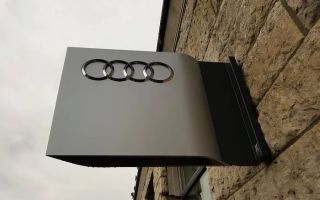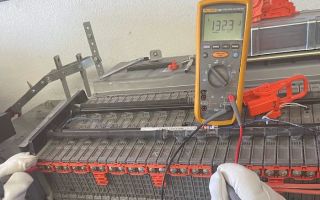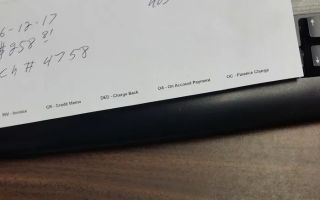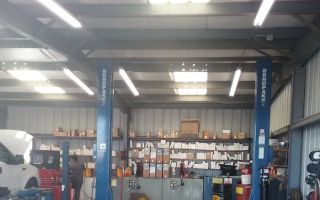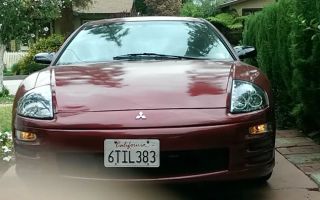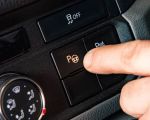- #understanding-auto-dimming-mirrors - Understanding how auto-dimming rearview mirrors work
- #common-dimming-problems - Common problems that affect rearview mirror dimming
- #diagnosing-mirror-issues - How to diagnose rearview mirror dimming issues
- #real-world-cases - Real-world driver experiences with mirror dimming failures
- #professional-solutions - Professional repair and replacement options from Rescue & Towing
1. Understanding How Auto-Dimming Rearview Mirrors Work
Many modern vehicles feature auto-dimming rearview mirrors designed to reduce glare from headlights at night. These mirrors use a combination of sensors and electrochromic technology to detect bright light and automatically adjust the mirror’s tint. When working correctly, the dimming process happens smoothly, improving visibility and comfort for the driver during night driving.
However, when the system malfunctions, it can cause several frustrating issues—ranging from mirrors that stay dark all the time to ones that never dim at all. Understanding how this system works helps you recognize the signs of failure before they become a safety concern.
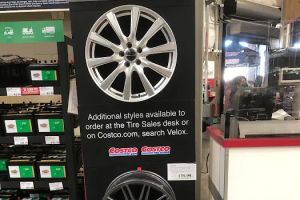
Costco Tire Center
43621 Pacific Commons Blvd, Fremont, CA 94538, USA
2. Common Problems That Affect Rearview Mirror Dimming
Drivers frequently report several common problems with car rearview mirror dimming. These issues can stem from electronic faults, sensor damage, or even environmental conditions. Below are some of the most typical causes:

Auto Service Center
6353 Ventura Blvd, Ventura, CA 93003, USA
2.1 Mirror Fails to Dim at Night
This is the most frequent issue. The mirror may remain bright even when headlights are shining directly on it. The likely culprits are malfunctioning light sensors—usually one facing the rear and another facing forward. Dirt or tint film on the windshield can also block the sensors from detecting glare properly.
2.2 Mirror Stays Dim During the Day
Another common complaint is a mirror that remains dark even in daylight. This typically happens when the sensor or internal electronic circuit malfunctions, causing the dimming liquid to stay in its tinted state. Prolonged exposure to heat or humidity can worsen this issue, as the electrochromic fluid may degrade over time.
2.3 Fluid Leakage Inside the Mirror
Auto-dimming mirrors rely on a special gel or liquid layer to change their tint. Over time, the seal may fail, causing the liquid to leak or bubble. Drivers often notice a brownish tint, dark spots, or uneven dimming. Once this happens, the mirror cannot be repaired—it must be replaced entirely.
2.4 Electrical or Wiring Issues
Loose wiring, faulty connections, or blown fuses can disrupt power to the mirror. If your mirror also controls features like garage door openers or compass displays, a wiring fault may cause multiple components to fail simultaneously. Regular inspection of wiring under the headliner or near the windshield is crucial for troubleshooting these issues.
3. How to Diagnose Rearview Mirror Dimming Issues
Diagnosing mirror dimming problems doesn’t always require professional equipment—many issues can be identified through visual inspection and simple tests.
3.1 Check Sensor Functionality
Locate both sensors (front and rear) on the mirror. Clean them gently with a microfiber cloth. Then, test the dimming function by shining a flashlight on the rear-facing sensor while covering the front one. If the mirror dims, the system works properly; if not, the sensor or circuit may need replacement.
3.2 Inspect for Fluid Damage
Look closely at the mirror surface under daylight. Signs of bubbles, streaks, or discoloration indicate a fluid leak. These issues cannot be fixed manually—replacement is the only long-term solution.
3.3 Verify Electrical Connections
Check if your car’s other interior electronics are functioning normally. If your mirror is integrated with features like a compass, temperature display, or backup camera, a power loss could indicate a shared fuse issue. Replacing the fuse with one of the same amperage often restores proper function.
4. Real-World Driver Experiences with Mirror Dimming Failures
Many drivers share similar experiences when dealing with faulty auto-dimming mirrors. For example, John, a truck owner from Nevada, noticed his mirror constantly dimming even during bright daylight. After inspection, he discovered that a cracked sensor cover was reflecting sunlight incorrectly. Replacing the sensor fixed the problem immediately.
Another case involved a Toyota driver in Colorado whose mirror showed a dark patch that slowly expanded over months. This was due to internal fluid leakage, and the only fix was replacing the mirror. Real-life examples like these highlight the importance of early diagnosis before damage spreads or affects visibility.
5. Professional Repair and Replacement Options from Rescue & Towing
If troubleshooting doesn’t solve the problem, professional help is the safest next step. The technicians at Rescue & Towing specialize in diagnosing and repairing electrical and mirror-related issues across multiple car brands. They use advanced diagnostic tools to pinpoint whether the issue lies with sensors, wiring, or the electrochromic glass itself.
In cases where replacement is necessary, they can source OEM or high-quality aftermarket mirrors and install them on-site or at the workshop. Their expertise ensures that your rearview mirror returns to full functionality—keeping you safe during night driving. If you’re facing persistent dimming problems or need expert advice, reach out to Rescue & Towing for reliable, professional solutions that restore clarity and comfort on the road.


